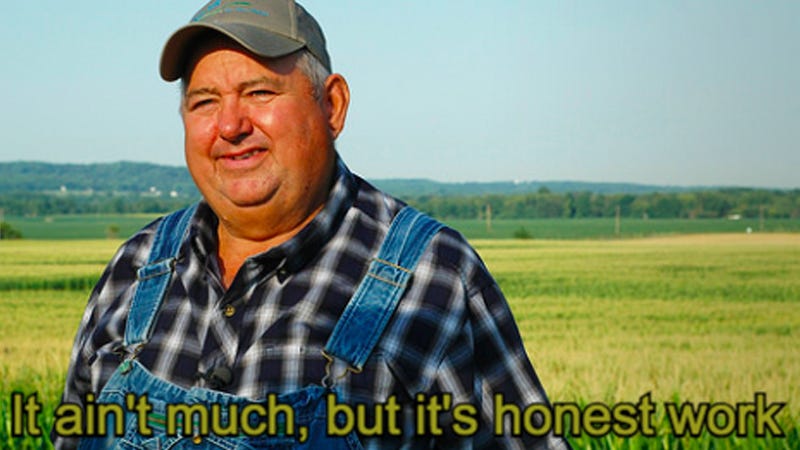Navigating Career Transitions
How to think about what to do next
Note: Applications for the next cohort of (an equity-free) On Deck Fellowship are now open— for people looking to explore starting their next thing. As well as On Deck Scale for scaling founders and OD Climate Tech for founders, employees, or investors in the climate space.
In my last post we discussed how to decide when to leave a company. Sometimes you decide it is worth it to stick around, but sometimes you decide that now is the right time to leave. That begs the question—once you have decided it is time to leave, how do you decide what to do next?
Deciding what is next is often difficult. You have many competing constraints, from money to time to decision-making capacity. It can also be daunting, since asking yourself what you want to do next often inspires the question “What do I want to do with my career?”
One question that might be easier to answer is “Who has a career I’d like to emulate?” Sometimes you don’t know exactly what you want to do, but all the people you see yourself more like tend to do a certain thing. You can squint and imagine yourself being that person. That’s a helpful instinct.
Indeed, while it’s helpful to think of the career you want to emulate and work backwards, you may also want to take a bottoms-up approach, because you can’t always see the future. You may know the kinds of things you want to do, but you may not know exactly what they are yet.
People often fool themselves into thinking their current role is preparing them for their future goals in a way it is really not. People consistently overrate how much learning transfers from one area to another. Learning usually only applies narrowly. It can apply directly to what you are currently doing, but those skills rarely transfer to other domains.
I often don’t believe in doing X so you can do Y. If you want to do Y, you can find a way to do it now, if only on the side.
If you want to be an investor for example, make sure you can either make investments, build a network of founders, build credibility operating, or build some skill set or asset that allows you to help founders.
If you want to be a founder, make sure you’re either starting something, put in a role where you can spin up new things, in a place where you can find your cofounders, or meet investors who will back your next thing.
You want to go out and try to do the thing you want to do, unless there is something else first that accelerates that thing more than doing the thing directly. But be rigorous in that analysis. Does joining, say, Facebook help you become a great founder more than becoming a founder helps you become a great founder? If so, how? It’s likely that working at Facebook doesn’t make you a better founder as much as it makes you a better employee at Facebook.
For me, joining Product Hunt was a better accelerant than starting a company. When I was deciding what to do after winding down rapt.fm, I knew I wanted to do something at the intersection of investing and operating and ideas. I joined Product Hunt because I felt it had asymmetric upside. If it succeeded, the fact I was the first employee would be great brand-wise and economically. If it didn’t, at least I’d build an excellent network and learn from an excellent founder. Regardless, it was where the action was. I knew I wanted to serve founders (either as an investor or an operator) and there was no better job on the planet that would enable me to build relationships with founders like Product Hunt did. To fulfill my ideas itch, I started a podcast and a newsletter. It ain’t much, but it’s honest work.
If you’re not sure whether you want to be an investor, founder, or exec, then try to meet a few of them and find out what they do. My first podcast, Maker Stories, was me effectively asking a ton of people “What’s it like to be you? How did you become you?” And really it was me asking myself “Do I want to become you? Could I feasibly become you?. If you can’t meet them, listen to podcasts with them describing their day-to-day, and see if you want to do what they do. Personality-wise, are you ready for the pressure and 24/7 life of being a founder? Or are you more intellectual and prefer the breadth and hands-off nature of being a VC? Is your personality better suited to be an exec and take something from 1->100 then 0->1?
Other questions that may be helpful to ask yourself, excluding any other immediate constraints (e.g. finances, etc) :
What’s easy for me to do but hard for others?
What gives me energy?
Can I apprentice for someone I want to be like?
Where can I develop skills so that “I can be so good they can’t ignore me?”
Am I in the field I want to be in?
Is there asymmetric upside, even separate from compensation?
Do I respect the people and want to be more like them?
Can I think of anything better I can be doing to set me up for what I want to do eventually?
A perfect next opportunity will put you far closer to accomplishing your goals (however broad) than you are now. You should see a path to either double down on a skill or domain expertise or build a unique or proprietary network. This should be so apparent that you’d be stoked about the opportunity regardless of the compensation.
Examples of hell-yes opportunities:
You got a role at a scaling startup with high growth opportunity within it if you prove yourself.
You’re Chief of Staff or otherwise apprenticing for someone incredible.
You have a front-facing role at an exciting company that improves your reputation.
You take a role that opens doors for you in the future that starting a company right now never could.
There are also a few key mistakes you should try to avoid, like taking a job because your parents understand what you do, or optimizing for the highest paying job when you don’t need it, or being afraid to do something that looks dumb. It's staggering how many talented people with money are working jobs they dislike because they're scared of the perceived reputational consequences of not having another job lined up, but then are too busy to find a new job so they stay at the job they dislike (e.g consulting)!
That said, it’s also worth avoiding the opposite mistake, as detailed in my last piece, which is leaving your current company too early, or with a bad reference, or otherwise not making the most of your existing opportunity. Sometimes the best opportunity is the one you currently have. Sometimes the grass is greener where you water it, etc etc etc.
In summary: My advice is to either do the thing you want to be doing, apprentice under someone you want to become, or make sure you’re accelerating your path to do the thing you want to do more than you could otherwise.
Deciding what to do next is never easy, but here are some final thoughts to remember: First, take solace in the fact that you are often choosing between incredible options. You’re optimizing on the margins, which is worth doing, but not at the expense of equanimity. Also, remember that what choice you make doesn’t matter nearly as much as how you perform when you make that choice. And finally, understand that we will never know what’s the better decision. We can’t play out the counterfactuals. There are no perfect solutions in life. Only trade-offs and opportunity costs.




Well written. I just - a few hours before this post came out - left a company where I was the very first intern among 1300 employees. Felt the most successful ppl I know of maintain optionality for long enough, but eventually choose to commit.
Would be great to address on another essay the question of how to evaluate the opportunities you face. E.g. https://productlessons.xyz//article/how-to-evaluate-startup-job-offer